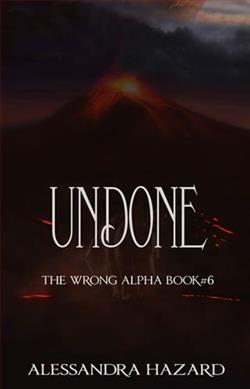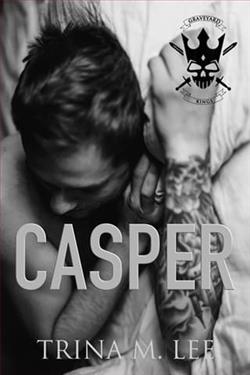Page 41 of Hallow Hill at Halloween: Part One
After pushing her toddy closer to her, I raised mine and took a sip. I felt in my bones that the next utterance, whatever it was, whenever it was, needed to come from her.
In her own time, when she was ready, she said, “Rita. I’m trusting you with this confidence.” I nodded slowly. “I don’t want anyone else to know.”
“Of course,” I said.
“They burned my mother.” I couldn’t look at Esme just then, so I looked over at the fire. It had seemed so cheery a minute ago, but I regretted insisting on that table and wished I could take back that choice. “After that they came to our house. It was a tiny cottage on the edge of town. Just one room with two cots, a loom, and a spinning wheel. They pulled me out and left me without even a shawl for warmth and set fire to our home.”
“I was in such a state of shock over my mother that I didn’t have any feelings about it. I watched as it burned to the ground. It grew dark, but the embers glowed, and I felt, for some reason, that I couldn’t leave as long as that sign of life remained. I sat with my knees pulled into my body through the night. It wasn’t cold enough to freeze, but was too cold to sleep.
“I think I was hungry. And thirsty. But didn’t know where I could go to beg for sustenance. My young body was stiff when I tried to rise. I walked slowly toward the market, but when I came close, people began cursing, throwing things at me and yelling, ‘Beware the evil eye. ‘Tis the witch’s daughter’.
“In short, I had nowhere to go. The people who’d been our friends and family drove me out of the village.
“I walked to the castle that had already come to ruin a couple of hundred years before my time. I was a girl just past puberty with no family or friends. I had no bread, no roof over my head. Not even a blanket to pull around me.
“I climbed the ancient steps. They’d been worn away by so many footfalls that they were no longer flat but angles on an incline. I kept going until I reached the roof. Even in my despair I was amazed by the beauty of the view from that height. I’d never seen anything like it.
“As I stepped over the parapet, I was profoundly grateful that my eyes should be filled with such beauty at the moment of my death.”
I couldn’t help the tears that had formed in my eyes, but tried to will them from falling. The moment was about Esmerelda and not my revulsive reaction to this horror. I was glad she didn’t notice. Her eyes were a little glazed like she was reliving the events as told.
“The wind rushed past as I began to fall. Oddly, I wasn’t afraid. No scream caught in my throat. I simply wasn’t afraid. All of a sudden it struck me as strange that I wasn’t afraid. It seemed more reasonable that I would be. At the same time, I realized I was no longer falling fast. I was drifting downward slowly. When I reached the ground, my feet touched light as a feather.
“That wasn’t all. I felt different. Strong. It occurred to me that I might have died but somehow been spared the pain of it. I looked around and spied a man bent from a hunchback. He pulled a cart of milk behind him, and I knew by the circumstance of his deformity and the deep lines in his face that it could not be heaven.”
Esme blinked rapidly and her eyes cleared. She looked at me with a wry, little smile. “I briefly wondered if I’d gone to the bad place, but I’d never had the opportunity to do anything bad. So, that didn’t seem like a viable explanation either.
“I began walking back toward the village with a purpose in mind. I wasn’t sure what I was, but my body was in control. I walked right by the site where I’d spent my life to that point. It was nothing but ashes. I continued until I reached the tavern. It was near dark by then. Most villagers were home having soup or bread.
“When I reached the tavern, I was able to squeeze the latch, but not open the door. It was heavy and I was very small and slight. For some reason I don’t understand, I pointed toward the latch. It released, like magic, and the door opened. I looked down at my hand, but saw nothing different from before.
“When I walked in, the little gathering grew immediately quiet. They stared as if they didn’t know me. No one uttered curses or accusations. They remained perfectly quiet. I made my way behind the bar where I stuffed two half loaves of bread into my apron pockets, and took a skin of ale. On the way out I also took a shawl that was draped over a chair, climbed the stairs, and found an empty bed available for rent by travelers. I slept like the dead until early morning, and no one bothered me.
“As I was leaving the following morning, I turned to the proprietor and said, ‘You know my mother was innocent. You all know it.’
“He held up his hands in a gesture of protecting himself from something wicked. Even with all that had happened, it struck me as comical that I might be considered wicked.
“With nothing else to my name, I followed the road that went west. I’d never been past the edges of my village. I’d lived a narrowly confined life. So, everything I saw was new to me. And a wonder.
“It was the beginning of a new life for me. Not one I’d asked for or wanted. One that was thrust upon me by taking everything. As if to punctuate the division between that day and every day that had come before it, the rain had stopped, and the sun had risen above the horizon.
“I walked. After a time, a wagon came up beside me and stopped. It was being pulled by a dapple-gray mare who eyed me suspiciously and bobbed her head in its harness.
“’Good day,’” said the man. The wagon driver was probably in his early thirties, but people aged quickly back then so he looked old. His hair was very red and made a stark contrast next to his gray-white beard, but his eyes were clear blue and I took him to be kind. “’Where are you off to?’”
“I thought about what to say and decided to ask a question instead. “’Where areyouoff to?’”
“He answered with a good-natured smile. “’We’ll be in Tamworth by midday. My horse will bring you there along with this hay.’”
“I looked at the load in the wagon. “’Hay?’”
“He gestured to his cargo. “’This hay was stored in a loft in a dry barn. With this cursed rain ruining everything, it’s worth its weight in gold.’”
“I nodded as if I was an authority on the commercial exchange of hay for gold.
“’If you’re coming, hop up,’” he said. “’I need to get to Tamworth before the rain starts again.’”
“’Thank you,’” I said and dutifully hopped into the back of the wagon where I found it pleasant enough to ride sitting on tied bundles of hay.















